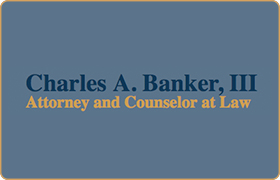 Webster White Collar Crime Lawyers, Texas
Webster White Collar Crime Lawyers, Texas
Sponsored Law Firm
-
 x
x

Click For More Info:
-
Charles Banker, Attorney at Law
405 Main St. Ste. 910 Houston, TX 77002» view mapCriminal 30 Years Experience
You need an attorney with criminal defense knowledge who will vigorously protect your rights.
800-969-9880
Sponsored Lawyers
1-5 of 5 matches
DUI-DWI, Criminal, Misdemeanor, Felony, White Collar Crime
Doug Murphy stands as a prominent figure in the legal realm of Houston, Texas, with a focus on Criminal Law and DWI Defense. His career, which began in 1999 with the establishment of Murphy & McKinney Law Firm, P.C., showcases a deep commitment to justice and legal proficiency. As President of the Harris County Criminal Lawyers Association and a member of the Board of Regents for the National College for DUI Defense, Doug's role in the legal community is marked by leadership and advocacy. Recognized consistently in listings like Best Lawyers in America and as a Texas Super Lawyer since 2009, Doug's achievements highlight his dedication to his practice. His significant role in revealing flaws in the Houston Police Department's breath alcohol testing vans led to his receiving the Sharon Levine Unsung Hero Lawyer of the Year Award in 2012, demonstrating his commitment to fairness in legal practices. Lauded by the Houston Press as the “Drinking Driver’s Best Friend,” Doug's influence extends beyond individual cases to broader systemic change and advocacy for equitable legal standards. Doug's practice covers a wide range of criminal cases, with an emphasis on DWI defense. His approach melds a comprehensive understanding of the law with a compassionate grasp of his clients' situations, ensuring they receive not just robust legal representation but also respectful and dignified treatment. Beyond his practice, Doug is a leader in legal discussions, evidenced by his numerous speaking engagements and contributions to publications. Fluent in Spanish, he reaches a diverse clientele, focusing on inclusivity and accessibility. In essence, Doug Murphy is more than just a lawyer; he is a key figure in the Houston legal community, an advocate for justice, and a dedicated representative for his clients. His unwavering commitment to excellence in criminal law and DWI defense makes him a distinguished choice for legal representation in Houston, Texas.
(more)


 Charles Banker Houston, TX
Charles Banker Houston, TX AboutCharles Banker, Attorney at Law
AboutCharles Banker, Attorney at Law Practice AreasExpertise
Practice AreasExpertise

